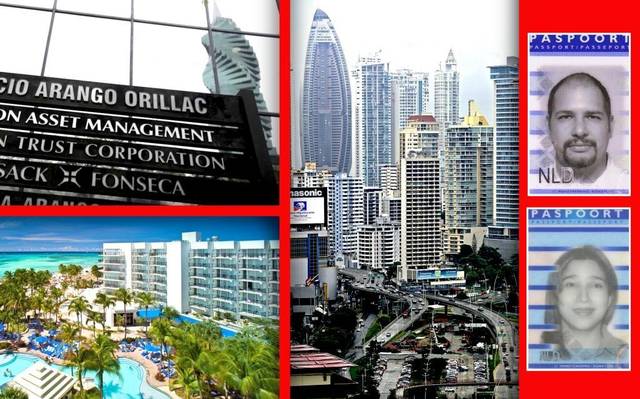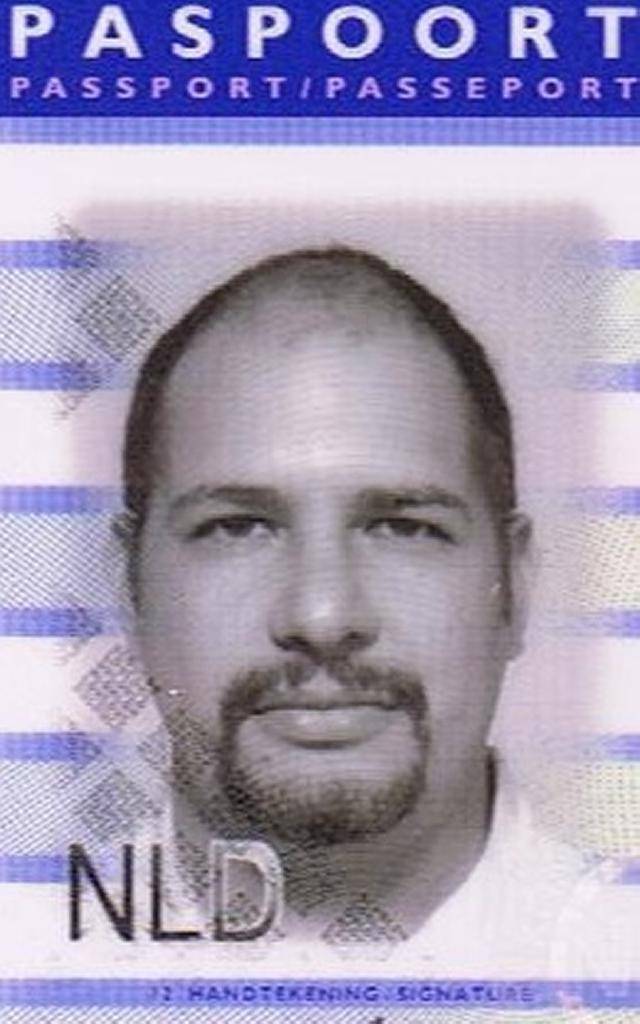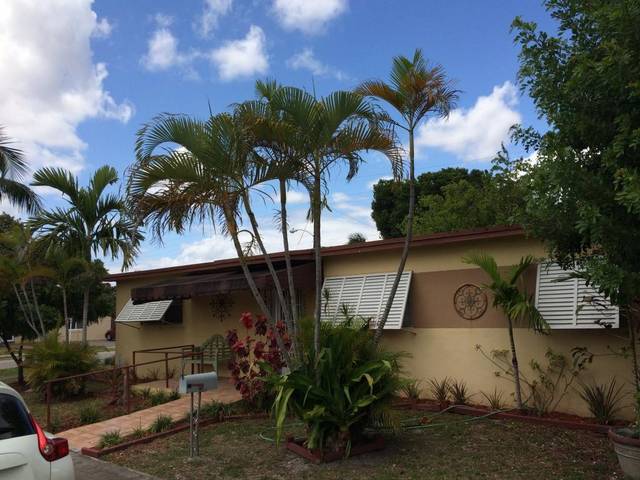By Jay Weaver and Nicholas Nehamas | Miami Herald

The release of the Panama Papers exposed an elaborate kickback scheme whose tentacles spread from the Caribbean island of Aruba to warehouses in Doral to the offshore banking haven of Panama City, according to a lawsuit filed in Miami federal court.
The scam was allegedly hatched by Egbert Koolman, an employee of Aruba’s state-owned telecommunications provider, Setar. Koolman’s job was to buy phones from suppliers around the world for Setar to sell to consumers. But his former company says Koolman defrauded the firm of “tens of millions” of dollars by accepting kickbacks from South Florida-based mobile phone suppliers that were awarded contracts at inflated prices.
Now Setar is suing Koolman, his ex-wife and the company’s former suppliers for millions in damages, asserting bribery, bid-rigging, fraud and racketeering violations.
In addition, some of the phones bought by Koolman were faulty and included built-in “pornography applications,” much to the embarrassment of his employer, the lawsuit states.

Setar only discovered the suspected fraud when Koolman’s name popped up in a list of offshore company owners published online as part of the Panama Papers exposé, according to the suit. The leak of 11.5 million secret documents from Panama-based law firm Mossack Fonseca laid bare a parallel offshore financial system accessible only to the rich and well-connected — one that is shockingly easy for fraudsters to abuse, anti-corruption experts say.
And documents included in the Panama Papers database — shared by the International Consortium of Investigative Journalists with the Miami Herald and its parent company, McClatchy — show Koolman set up an anonymous offshore company in the British Virgin Islands and used it to open two bank accounts in Panama. The lawsuit accuses Koolman of routing the stolen money through his offshore firm and spending it on renovations for his house in Aruba, including pool repairs and solar panels. Other funds were used to buy his son a pickup truck and pay rent and other expenses for his former mistress, the lawsuit claims.
Amazingly, were it not for the recent Panama Papers disclosure, this illicit conduct could have continued on unchecked indefinitely. Benton Curtis, Setar attorney
Setar fired him last August.
But far from openly enjoying the fruits of his alleged corruption, Koolman now lives in a modest home in working-class Hialeah. No Florida properties or companies are registered in his name.
Koolman did not respond to a message left Friday at his Hialeah home, which he shares with a female companion. He has not yet retained an attorney, federal court records show.
Setar’s attorney credited the Panama Papers with outing the former Setar products manager.
“The strong evidence in this case indicates that Mr. Koolman, along with his many co-conspirators, bilked our client — and really the Aruban people — out of millions of dollars for more than a decade,” said Setar’s Miami-based attorney, Benton Curtis, with the law firm Broad and Cassel.
“This should be a clear call to corporations operating in these regions [South Florida to the Caribbean and Latin America] to take a much harder look at their records and institutional controls so that they too are not victimized by cavalier employees,” Curtis said. “Amazingly, were it not for the recent Panama Papers disclosure, this illicit conduct could have continued on unchecked indefinitely.”
The alleged scam
Over the past decade, Koolman is accused of collaborating with his ex-wife, a mistress and a handful of South Florida vendors to purchase cell phone products for Setar at prices 20 percent higher than competitive market rates, according to the suit filed this month. In many instances, the phones were refurbished — not new — and infected with viruses and malware, the suit claims.
The complaint reads like a criminal indictment, accusing Koolman and the others of operating like a “racketeering enterprise.” It accuses him of hiding the alleged scam from his superiors by plotting with the Miami-based vendors to set up “a web of secretly related companies” under the names of elderly family members and children so they could be shielded from Setar’s executives.
Between 2005 and 2016,
“Koolman repeatedly and systematically abused his position with Setar by manipulating the procurement process to steer business to his co-conspirators,” the suit said. The vendors “would reward Koolman and others with millions of dollars in kickbacks” in exchange for “ill-gotten purchase contracts on mobile phone equipment.”

It is unclear how much Koolman profited from the alleged corruption scheme, but the suit says he spent tens of thousands of dollars on improvements to his home in Aruba. Among the expenses: $15,000 on pool renovations; $10,000 in solar panels; $10,000 in home appliances and furniture; and the purchase of a $10,000 pickup truck for his son. Koolman bought the goods in Miami, where he regularly traveled, and shipped them through Setar’s freight-forwarding vendors in South Florida.
$15,000 Amount allegedly spent by Egbert Koolman on pool renovations
After Koolman’s name surfaced in the Panama Papers, Setar managers confronted Koolman and conducted an internal audit, leading to his firing.
Setar’s Miami-based attorney said Koolman did not come clean.
“He gave varying stories depending on whom he was talking to in the company,” said Curtis, a former prosecutor with the Justice Department. “But as far as the executives in the company were concerned, they believed he was not telling the truth about certain material facts.”
Setar’s suit is likely to catch the attention of Justice Department prosecutors specializing in Foreign Corrupt Practices Act investigations.
The complaint’s kickback allegations are similar to those raised in the criminal prosecutions of eight defendants named in the so-called Haiti Teleco investigation launched after former Haitian President Jean-Bertrand Aristide was forced to leave office in 2004. Eight years later, a former top official of Haiti’s state-owned telecommunications was convicted at trial of accepting bribes from Miami vendors that sold phone minutes for mobile phone customers in Haiti. Other defendants were also convicted in related cases.
One of the Miami-based defendants in the Aruba case, Chung-Wen “Benny” Wu, denied any connection to illegal activity after being reached on his cell phone.
“We were just doing business,” said Wu, who runs Doral-based Bengo Mobile and is a principal of Fellow Trading. “I don’t know why they sue me. We were just a vendor for Setar. None of this is true. It is ridiculous.”
None of this is true. It is ridiculous. Chung-Wen “Benny” Wu
He said he mainly spoke to Koolman on the phone, had only met him a few times at trade shows in Las Vegas and was never offered any under-the-table deals. Wu’s company imports cell phones from Europe, China and Hong Kong and then sells them to providers in the Caribbean.
Another defendant in the lawsuit, Max Rivadeneira, did not return messages sent via social media. Rivadeneira is an officer and principal of two of Setar’s former suppliers, ITech and TTX. He also had affiliations with three other Miami-based vendors that collectively sold more than $23 million in mobile phone equipment to Setar, according to the suit.
Rivadeneira now operates a South Florida company called Soul Obsession that produces custom-made, eco-friendly yoga mats, according to its website. (Prices start at $69.)
A third defendant, Larry Parker, could not be reached. Parker is the registered agent and officer of ISky, Quantum and I-GSM and was affiliated through his mother with ITech, the suit said. They are all former vendors for Setar.
The offshore angle
Mossack Fonseca documents included in the Panama Papers’ leak confirm Koolman was a player in the offshore world.
In 2006, Koolman hired MF to set up an offshore company called 3DK Consultant Corp. in the British Virgin Islands. The idyllic island chain is known as one of the world’s least transparent offshore havens. It is impossible to tell who owns a BVI company without access to confidential, internal documents.
The other shareholders of the company were Koolman’s ex-wife, Evarina Xiomara Deborah Koolman, and their two children. Koolman and his wife, who was formerly employed by the Central Bank of Aruba, divorced last summer.
Koolman, as is common in the offshore world, was extremely vague about the purpose of the company. In an application form to MF, he wrote simply:
“The corporation’s object shall be to perform any and all activities in the broadest sense of a professional consultant services, such as technical support, product sales and marketing consultant, trading consultant, business coaching consultant etc.”
MF employees did not ask him to elaborate, according to the leaked documents.
The firm generally did not appear to ask many questions about clients, despite know-your-customer, anti-money laundering rules, according to a review of its massive internal documentation conducted by nearly 400 journalists worldwide and led by ICIJ. Mossack has defended its due diligence practices since the Panama Papers stories broke in April 2016, saying the firm follows all laws and regulations required of offshore service providers.
Eventually, Koolman’s company used 3DK Consultant to open a corporate checking account at the Panama branch of Lima-based Credicorp Bank, emails show.
The Panama Papers were a global collaboration of nearly 400 journalists around the world led by the International Consortium of Investigative Journalists. They analyzed 11.5 million leaked documents from the law firm Mossack Fonseca.
In 2008, 3DK was able to open a savings account with Credicorp that required a minimum $10,000 deposit. Later that year, the company received a corporate credit card from Credicorp. Koolman also sought to open a third account with the bank but it’s not clear if that happened. The documents do not show whether Koolman moved money into those accounts.
Koolman also traveled the world during this time, according to a copy of his passport requested by MF in 2012 as part of a background check. Entry stamps and visas show frequent trips to Hong Kong and the Dutch Caribbean island of Curaçao, with other stops in Miami, Panama City, Singapore and China.
In 2015, after receiving an invoice, Koolman’s ex-wife emailed an MF employee saying 3DK Consultant had not been used in several years. She requested to meet with MF in Panama City to discuss shutting the company down. While in Panama, she made time to take in a Marc Antony concert, emails show.
However, the company remained active, according to MF internal records. (The Herald could not locate Evarina Koolman for comment.)
Murky offshore world
The Panama Papers leak has been crucial to the public’s understanding of the murky offshore world, said Shruti Shah, a forensic accountant and vice president of Transparency International USA, an anti-corruption nonprofit group.
Law enforcement officials and creditors can rarely peer behind the veil to see who really controls offshore companies, making them ripe for use in political corruption, embezzlement and corporate bribery schemes.
“The Panama Papers highlight how easy it is for criminals and fraudsters to manipulate the global financial system and use the secrecy afforded by these anonymous companies to benefit from their ill-gotten gains,” Shah said. “The whole concept behind a shell company is you cannot figure out who ultimately controls the company or who is deriving economic benefits from it.”
The Panama Papers highlight how easy it is for criminals and fraudsters to manipulate the global financial system. Shruti Shah, Transparency International USA
She pointed to the discoveries made by journalists investigating the papers, which led to the resignation of the Prime Minister of Iceland, as well as government inquiries around the world, as evidence of the need for offshore havens to adopt more transparent corporate laws.
Another result of the leak: Mossack Fonseca founders Ramon Fonseca and Jurgen Mossack were arrested and refused bail in Panama City in February. Their firm, one of the world’s largest providers of offshore corporate services, has consistently denied wrongdoing.
Panamanian prosecutors charged the pair with money laundering in relation to the international corruption scandal known as Lava Jato that is sweeping Brazil and other Latin American countries, according to Panamanian newspaper La Prensa. The allegations concern bribes allegedly paid by multinational engineering firm Odebrecht to politicians in the region.
“The money originating from [the corruption] circulated among different companies to then return laundered to Panama,”
the nation’s attorney general Kenia Porcell said in a statement about the arrests posted online.
Last week, MF’s attorneys submitted a habeas corpus motion to a Panamanian judge asking for the release of Mossack, Fonseca and a third jailed employee of the firm.
Bron: MiamiHerald

